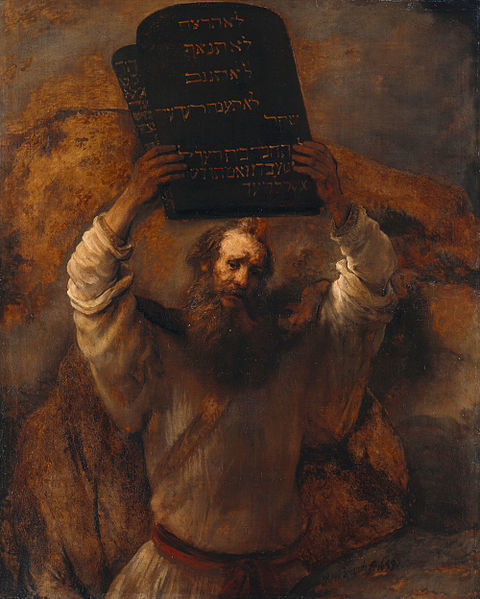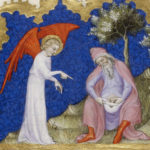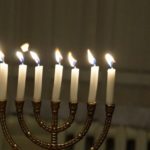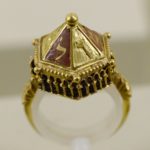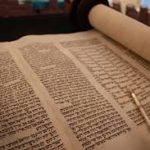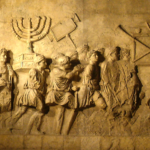“And there has not arisen a prophet since in Israel like Moses, whom the Lord knew face to face, none like him for all the signs and the wonders that the Lord sent him to do in the land of Egypt, to Pharaoh and to all his servants and to all his land, and for all the mighty power and all the great deeds of terror that Moses did in the sight of all Israel” (Deuteronomy 34:10-12).
The eulogy for Moses as reported in the book of Deuteronomy marks him as one of the greatest and most unique individuals in the history of the people of Israel. He is remembered as one who knew the Lord so well that he could speak to him face to face as one does to another human being. He was remembered as one through whom the Lord did amazing wonders in the land of Egypt that displayed the Lord’s great power over his enemies and proclaimed the Lord’s glory before the people of Israel. The life of Moses is one of the most significant in all of history.
Who was Moses and how does his legacy continue to impact both the Jewish people and the world today?
Moses was born at a very precarious time for the people of Israel. They were living in a foreign land, Egypt, and the leadership in Egypt had begun to take a very negative view of this large foreign minority living within its borders. The paranoia of the new Pharaoh threatened to cut off Moses’ young life before it had a chance to begin.
“Then the king of Egypt said to the Hebrew midwives, one of whom was named Shiprah and the other Puah, ‘When you serve as midwife to the Hebrew women and see them on the birthstool, if it is a son, you shall kill him, but if it is a daughter, she shall live’” (Exodus 1:15-16).
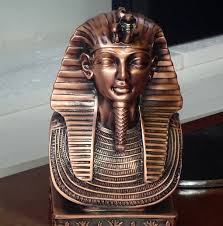 The Jewish people have endured many attempts to exterminate them as a people and this was one more attempt. The Pharaoh’s command would have in time eliminated all male born Jews from having life, but the Lord was with the midwives and this did not occur. None-the-less, the birth of a boy was a dangerous thing and when Moses’ mother gave birth to him, she knew that she could not keep him alive secretly for long. She demonstrated her faith in the Lord by placing the baby Moses in a basket and putting her hope in the Lord that he would make a way for the young child to live.
The Jewish people have endured many attempts to exterminate them as a people and this was one more attempt. The Pharaoh’s command would have in time eliminated all male born Jews from having life, but the Lord was with the midwives and this did not occur. None-the-less, the birth of a boy was a dangerous thing and when Moses’ mother gave birth to him, she knew that she could not keep him alive secretly for long. She demonstrated her faith in the Lord by placing the baby Moses in a basket and putting her hope in the Lord that he would make a way for the young child to live.
“And Pharaoh’s daughter said to her, ‘Take this child away and nurse him for me and I will give you your wages.’ So the woman took the child and nursed him. When the child grew up, she brought him to Pharaoh’s daughter, and he became her son. She named him Moses, ‘Because,’ she said, ‘I drew him out of the water’” (Exodus 2:8-10).
Moses’ very name recalled how he was miraculously delivered from death and amazingly found a home as the adopted son of the daughter of the Pharaoh himself. Moses’ mother willingly gave him up to another in order to save his life. Thus, Moses had both the heritage of a child of Israel as well as the education and training that came from being raised in the palace of the Pharaoh of Egypt. Moses would use both these facets of his upbringing in order to be used by the Lord to lead the people of Israel out of bondage in Egypt, but first, he had to have his character formed and tested and this would require many years before he would be ready to be used by the Lord. Moses’ impetuous nature would lead to his life nearly being cut short once again.
“When he went out the next day, behold, two Hebrews were struggling together. And he said to the man in the wrong, ‘Why do you strike your companion?’ He answered, Who made you a prince and a judge over us? Do you mean to kill me as you killed the Egyptian? Then Moses was afraid, and thought, ‘Surely the thing has become known.’ When Pharaoh heard of it he sought to kill Moses. But Moses fled from Pharaoh and stayed in the land of Midian. And he sat down by a well” (Exodus 2:13-15).
Moses’ impetuous actions in seeking justice for his fellow Israelites led to him becoming a fugitive before Pharaoh.
He fled to Midian and it seemed that he would spend the rest of his life there. A life that had begun with such high expectations and such a unique work of the Lord seemed to have floundered in disgrace and ruin. But the Lord was not through with Moses and one day the Lord appeared to Moses and redirected him back to the leadership role that the Lord had planned for him.
“Come, I will send you to Pharaoh that you may bring my people, the children of Israel, out of Egypt. But Moses said to God, ‘Who am I that I should go to Pharaoh and bring the children of Israel out of Egypt? He said, ‘But I will be with you, and this shall be the sign for you, that I have sent you: when you have brought the people out of Egypt, you shall serve God on this mountain” (Exodus 3:10-12).
Moses and the Burning Bush
The Lord appeared to Moses in a bush that burned but did not burn up and gave him the commission to be his agent through which the people of Israel would be delivered from bondage in Egypt. Moses was to be sent to Pharaoh as the Lord’s agent and Moses would speak on behalf of the Lord in a challenge of power. The Lord would do many signs, known as the ten plagues of Egypt, in order to force the hand of Pharaoh and to strike fear into the hearts of the Egyptian people. It would depend on the willingness of Moses to stand before Pharaoh and champion the deliverance of the people of Israel. When the tenth plague fell upon the firstborn of all the Egyptians, Pharaoh finally relented and Moses led the Israelites out of Egypt and toward the Promised Land.
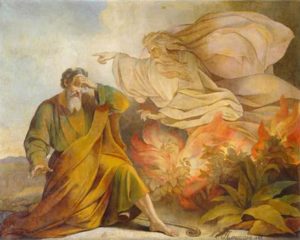
“At the end of 430 years, on that very day, all the hosts of the Lord went out from the land of Egypt. It was a night of watching by the Lord, to bring them out of the land of Egypt; so this same night is a night of watching kept to the Lord by all the people of Israel throughout their generations” (Exodus 12:41-42).
The obedience of Moses in leading the people of Israel out of Egypt demonstrated the power of the Lord is leading his people to the place that he had planned for them. This event is so significant to the people of the Lord that it is remembered yearly in the celebration of the Passover and the feast of unleavened bread. Moses continued to lead the people of Israel and did great wonders through the power of the Lord. The parting of the Red Sea, the miraculous appearance of manna, the water from the rock, and the giving of quail all were ways in which the Lord showed his care and power as Moses led the wayward people through their wanderings. Though the first generation of Israelites did not have faith to enter the Promised Land, Moses continued to lead them until that generation had died off. He spent time faithfully before the Lord and had the privilege of receiving the Ten Commandments personally from the Lord. Moses spent much time in an intimate, close relationship with the Lord.
“Thus the Lord used to speak to Moses face to face, as a man speaks to his friend. When Moses turned again into the camp, his assistant Joshua the son of Nun, a young man, would not depart from the tent” (Exodus 33:11).
Despite his faithfulness, Moses would not lead the next generation into the Promised Land.
His impetuous nature would rise up at the wrong time and cause him to misrepresent the Lord to the people of Israel who followed him.
“Then Moses and Aaron gathered the assembly together before the rock, and he said to them, ‘Here now, you rebels: shall we bring water for you out of this rock?’ And Moses lifted up his hand and struck the rock with his staff twice, and water came out abundantly, and the congregation drank and their livestock. And the Lord said to Moses and Aaron, ‘Because you did not believe in me, to uphold me as holy in the eyes of the people of Israel, therefore you shall not bring this assembly into the land that I have given them’” (Numbers 20:10-12).
When the people of Israel once more demanded water, Moses lost his temper and struck the rock rather than speaking to it as the Lord had commanded. He spoke harshly to the people in a manner that misrepresented the Lord and as a result, Moses lost his opportunity to lead the people into the Promised Land. Moses would have the privilege of seeing the land, but he would not be able to enter.
“And the Lord said to him, ‘This is the land of which I swore to Abraham, to Isaac, and to Jacob, “I will give it to your offspring.” I have let you see it with your eyes, but you shall not go over there.’ So Moses the servant of the Lord died there in the land of Moab, according to the word of the Lord,” (Deuteronomy 34:4-6).
Moses took the people of Israel from bondage in Egypt to the cusp of entry into the Promised Land.
Though he struggled with his impetuous nature that led him into painful and difficult situations and that eventually kept him from leading the people into the Promised Land, he was a man who had an intimate relationship with the Lord and who was a greater leader and prophet for Israel. He left the Jewish people with a testimony of a faithful life and a system of law that would enable them to know the Lord and to please him with their lives. Moses continues to this day to be one of the most important Jewish people to ever live and many have been impacted deeply by his legacy.

